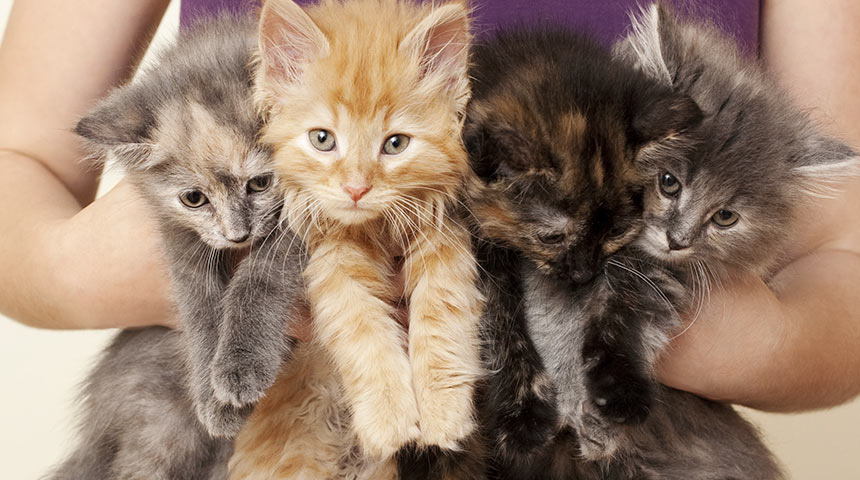A cat reaches sexual maturity around the age of 5 to 8 months. Therefore, this means that they can start reproducing from a young age. Most of us have no desire to do cat breeding and we certainly do not want to add to the burden that stray cats can cause. Spaying a cat - castration in the male (removal of the testicles) and sterilization of the female (removing the ovaries and uterus) - not only prevents unwanted pregnancies, but also limits the associated undesirable behaviors associated with sexual maturity and even reduces the risk of certain diseases.
Here are the 3 main reasons for sterilizing a female cat:
Health risks: Female cats that are not neutered are more likely to suffer from pyometra (infection of the uterus) later in life, and develop breast tumors. Female cats suffering from infectious diseases can pass them on to their kittens.
Population control: It is important to sterilize a cat before she can have kittens. This surgery is very fast depending on the cat’s breed, her birth month and her individual development. The first estrus season usually occurs approximately at six months, but can happen earlier. Female cats can have up to three litters per year if not sterilized.
Nuisance control: Female cats will call out and will be more receptive to male cats (by catcalling, or meowing and yowling excessively) when they come into heat. This will occur approximately every three weeks for sexually active periods of the year if they do not get pregnant. The more unsterilized female cats are present in a geographic area, the more they attract uncastrated males, causing more fights and catcalling.
Here are the top 3 reasons for castrating a male cat:
Health risks: Uncastrated males tend to fight more with other cats and are much more likely to spread diseases such as FIV and FeLV to other cats. They are also more likely to sustain injuries from their fights such as abscesses. Because they roam over a large area, they are also more at risk of being victims of road traffic accidents.
Problematic behaviors: Uncastrated male cats wander away from the house and could potentially not return. They can also mark their territory inside the house with urine and can be aggressive towards their owners. It is therefore desirable to neuter kittens early enough so that the above problems are avoided.
Nuisance control: Uncastrated cats may wander over a larger geographical area and mark it with urine. Uncastrated cats are much more likely to fight, which causes noise disturbances.
In addition to helping prevent diseases and infections that can be fatal, neutering increases the potential quality of life of your furry friend.





